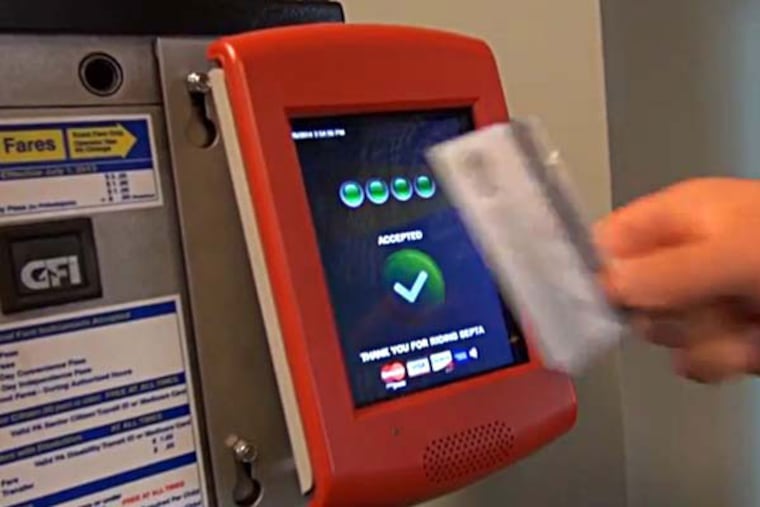The unnecessary headache of traveling with SEPTA Key | Opinion
I had a hard time navigating it, and I’m a college-educated, native English speaker who has a credit card to cover unexpected expenses. Most SEPTA users aren’t like me.

Being an aunt is possibly my favorite part of adulthood. I have six nieces and nephews, and as a lifelong Philadelphia-area resident I consider it my duty to help them explore all that our city has to offer. Usually, that means taking public transit. It’s convenient, easy to use, and often the cheapest way to get where we’re going. I’ve had a monthly SEPTA pass for more than 20 years, and I know all the ins and outs of our system.
Or so I thought. Last week, as I prepared to take five of the young ones to the Arden Theatre, I realized that I had run out of subway tokens. In the back of my mind I knew that SEPTA was phasing them out, but somehow I’d always had a stash left.
With the help of a friendly ticket agent, I reviewed the situation. SEPTA’s family pass was no solution; it only covers two adults and three kids. I was buying for one adult and five children. (I had my monthly pass, but my partner was coming, too, and he’s not a regular user.)
The option SEPTA offers now that tokens are gone is the Key card, which cost $4.95 each. I already own one for guests, but I was not about to buy five more and pay nearly $25 in service fees plus $20 in fares. (No, you can’t have multiple people use the same card.)
You’re probably wondering why we couldn’t just walk. Answer: Short time headway between train and theater event. And I wasn’t about to cram seven people into a taxi.
Per the ticket agent, my only choice was the one-time passes SEPTA calls "quick trips.” But, bizarrely, you can only buy those on the day of use. So now I had to budget extra time for that.
Fast-forward to the day of the show. Now I'm in the station with five antsy kids. And it turns out that there’s a limit how many quick trips you can buy in one transaction. The limit is eight. But of course I need 12 to cover round-trip travel for six people.
I'm also forced to pay a surcharge. Before, a 10-pack of tokens would have cost me $1.80 per ride. If I could use a Key card that I already owned, I'd be paying $2 per trip. But instead I'm stuck paying the cash fare of $2.50.
Eventually I get all 12 of the quick trips. We take the subway. The theater is delightful. Everyone goes home happy.
But I can’t stop thinking about what an unnecessary headache this was. I had a hard time navigating it, and I’m a college-educated, native English speaker who has a credit card to cover unexpected expenses. Most SEPTA users aren’t like me. For starters, more than 1 in 4 people in our city are poor. The difference between $2 and $2.50 is a lot to a person in poverty.
When SEPTA took away the token, it took away an easy, flexible tool that Philadelphians can use to cover all sorts of different situations — field trips, errands, medical appointments – in which a regular transit user is shepherding occasional users. It happens hundreds of times a day. And it’s especially common among people with few economic resources.
I know SEPTA was repeatedly warned about this issue before it rolled out the Key card, because I was part of an advisory group that raised it. But instead of addressing it, SEPTA officials chose to put an expensive burden on the backs of the most vulnerable Philadelphians. By making transit harder to use, they also increased traffic headaches for everyone, since some people will simply give up and take a taxi or car-share instead.
I often brag about SEPTA to people in other cities and defend it to my fellow Philadelphians. But this is a massive blind spot. I know our city can do better, and I’m counting on SEPTA officials to fix this problem now.
Amanda Bergson-Shilcock is a lifelong SEPTA rider who lives in Glenside. She works in the nonprofit sector.